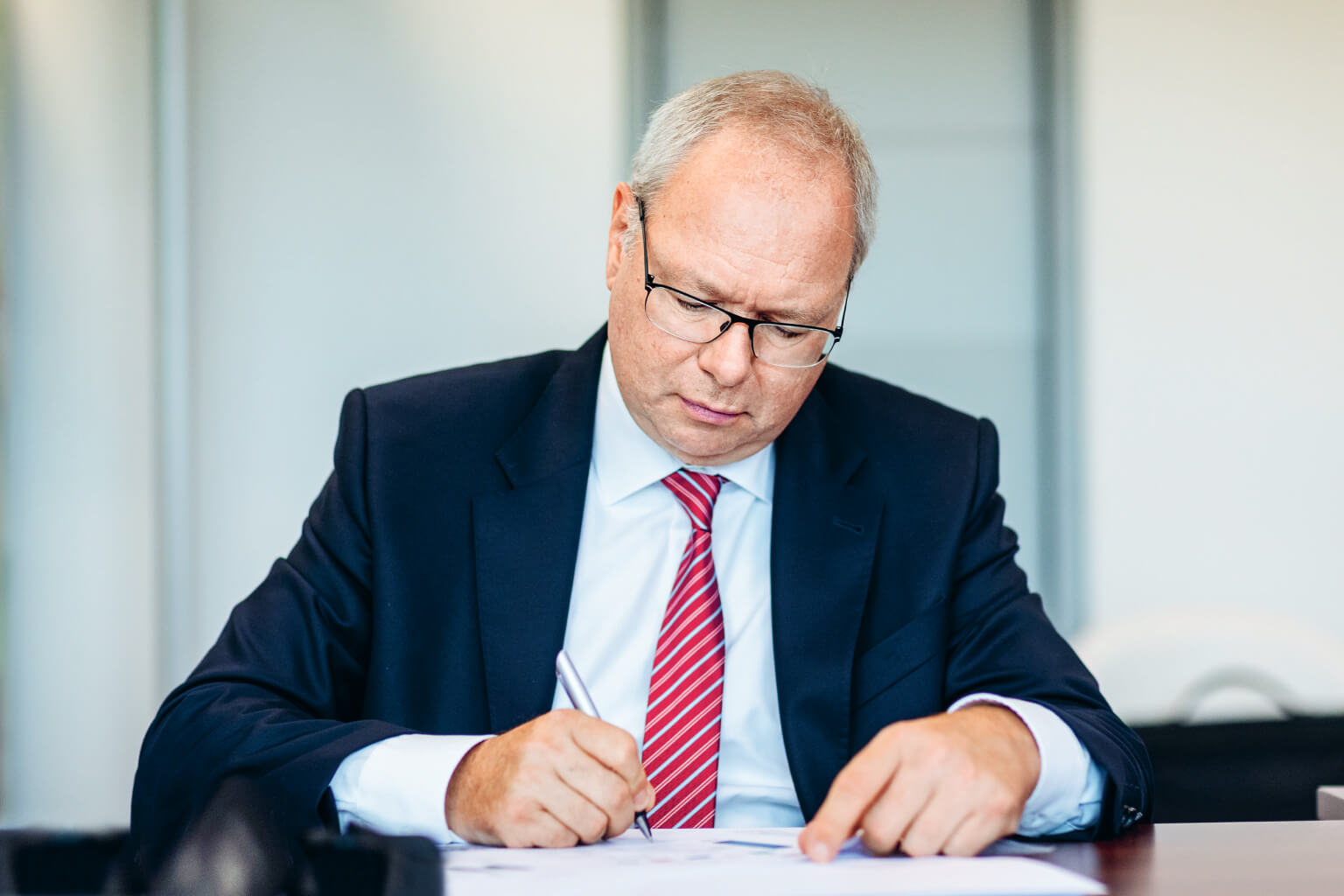STABLE AND SUSTAINABLE
How INDUS is securing its long-term financial flexibility. Over recent years, INDUS has secured a broad spectrum of financing options for itself. Another instrument was added in fall 2020 with the issue of its first “green promissory note.” This allows the company to also perform larger acquisitions at any time.
A SUSTAINABLE CORPORATE STRATEGY IS PART OF INDUS’ CORPORATE DNA
Sustainability has a long tradition at INDUS. Since the Group was founded, business has been based around the sustainable “buy, hold & develop” model. A fundamental part of the SME-like corporate culture has always been the idea that the careful and efficient use of natural resources of all kinds is what makes for sustainable leadership. So, it was only natural for INDUS to take part in the Carbon Disclosure Project reporting early on and for it to have been ranked by the rating agency ISS ESG, formerly Oekom, since 2015. INDUS also publishes a robust nonfinancial (sustainability) report in accordance with the recommendations of the German Sustainability Code.
This consistent sustainability strategy is in line with rising external expectations. The EU and the German federal government have laid out ambitious measures with the 2030 Climate Protection program. The area of “Sustainable Finance” – taking into consideration sustainability aspects in private and public financing decisions – is intended to flank the transformation measures for achieving a climate-neutral economy. At the same time, expectations regarding transparency are also increasing on the capital market. Investors and creditors are increasingly basing their decisions on more stringent and critical evaluations of the issuers’ sustainability profiles. Suppliers and customers also expect aspects of business relating to sustainability to be clearly disclosed.
No wonder then that the market for green finance is booming in Europe. By financing environmental and climate protection projects or by linking financing with environmental ratings, companies are taking stakeholders’ interest in sustainability into consideration. Both political institutions and private sector stakeholders are publishing supplementary frameworks for sustainable financing. This helps the market to defy the confusion caused by the coronavirus pandemic. According to the consulting company Capmarcon, the green emissions volume in the first three quarters of 2020 climbed 63% in comparison with the previous year – to EUR 143 billion.

Providing solid financing for a company without a coherent sustainability strategy has already become unthinkable.«
Rudolf Weichert, Member of the INDUS Board of Management
INDUS will be publishing its first separate sustainability magazine in 2021
SUSTAINABLE FINANCING – “GREEN FINANCE” FROM INDUS
The future will be greener. Funding – at least at favorable conditions – will only be made available if used in a sustainable manner. A company’s financial ratings will take into account sustainability risk when the default likelihood is evaluated. Bond issuers with high ESG ratings will have lower spreads, a stronger financial basis and a lower risk of default.
By issuing an ESG-linked promissory note in fall 2020, INDUS linked financing with a sustainability rating for the first time and thus implemented another element of its sustainability strategy. If the sustainability rating deteriorates, financing will become more expensive. If the rating improves, interest payments will fall. INDUS was only able to issue this note with a volume of EUR 60 million because it has been successfully working on a comprehensive sustainability strategy and implementing it within the Group since 2015.
Sustainable finance – a summary
- Sustainability is fully established in the finance department.
- With a sustainable financing system, more climate-neutral, energyefficient and resource-efficient projects will be launched.
- Sustainability aspects must be taken into account when issuing to investors or creditors.
- New reporting standards and frameworks set new standards.
- Consistently applying the sustainability strategy secures financial opportunities – and the further growth of the INDUS Group.